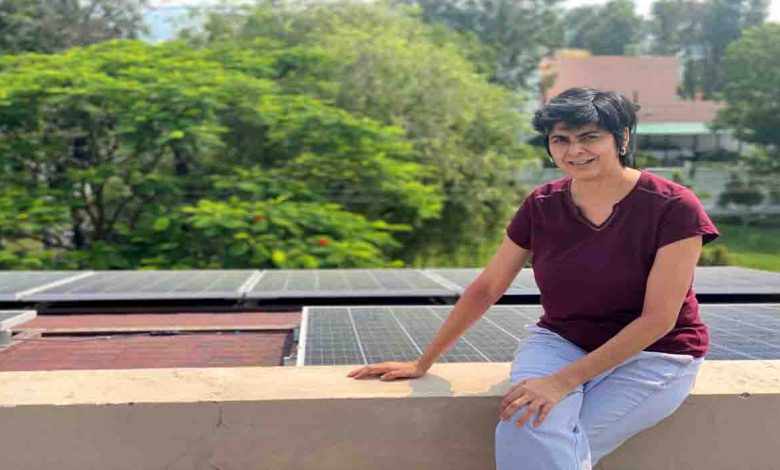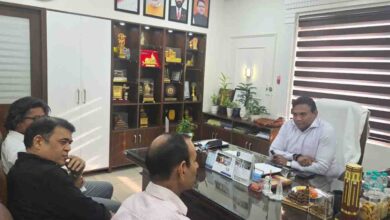Little changes on daily basis can save the earth

Friday, 09 July 2021 | Purnima Bisht | Dehradun
By making small changes in our daily life, we can all do our bit in protecting our environment. With the right mindset and simple methods, everyone can contribute to saving the earth. This was stated by Dehradun resident Anisha Madan who has made simple yet effective changes in her life and developed a lifestyle that is aimed at minimising the negative impact on the environment. Madan, who is a graphic designer, said that though she was always inclined towards the topics that talked about saving the environment or ways that might harm the earth, she never actually did anything practical about the environmental issues.
However, when Madan started working in the fashion industry after completing her studies in fashion designing, she observed that lots of chemicals were being used and tonnes of fabric were being wasted on a daily basis which disturbed her. After this, she started working as a graphic designer but the real change happened after she was diagnosed with endometriosis in the year 2005. Endometriosis is a disorder in which tissue that usually lines the inside of a woman’s uterus grows outside the uterus. She said that when she researched about endometriosis, she found out how bleach, synthetic sanitary napkins, industrial waste and other chemical by-products can severely affect our health. Madan said that being diagnosed with endometriosis was a turning point in her life after which she gradually started making small changes to her lifestyle. Now for over a decade, she has adopted several ways to live a life with minimum waste generation.
“Little changes on a daily basis can bring a great change over a period of time. For instance, we keep our dry and wet garbage separately. Wet garbage is used to make manure at home. We also separate our dry garbage under different categories like e-waste and anything which can be sent for recycling or can be reused in any other way,” said Madan. Besides this, she also uses handbags and wallets made of fabric instead of artificial leather. She also uses a bamboo toothbrush instead of a plastic one. She said that she also avoids bringing vegetables and ration supplies in polythenes and always carries a fabric bag to carry things. She added that she grows most of her vegetables in her own garden. Interestingly, Madan even does not use any bottled shampoo, soap or talcum powder. According to her, she uses a shampoo bar that comes in paper packaging and makes Ubtan at home to wash her face. She said that she uses alum (fitkari) instead of talcum powder during summers. She also disclosed that rather than using synthetic sanitary napkins, she uses reusable sanitary napkins, disposable cloth napkins and menstrual cups. “A woman on average uses several synthetic sanitary napkins which can harm the environment. Such sanitary napkins can also cause several diseases and hormonal imbalance in women if used for a long time. So women should either use reusable sanitary napkins made from cloth which can be easily made at homes too or should use menstrual cups,” stated Madan.
She also uses solar energy for electricity at her home. She said that installation of a solar plant is not difficult and anyone can install it as the government also provides subsidies on its installation. She also said that though some might find the installation cost of solar plants somewhat expensive but it is worth it in the long run. Besides contributing to a safer environment, it also reduces the consumption of electricity to a great extent. Depending on the power consumption of a family, the electricity bill can also be zero with the use of solar energy, said Madan.
On being asked about whether it has been hard to follow all these things, she said that nothing seems hard once we make up our minds. She said that she is not doing anything extraordinary and everyone can follow this path by putting some effort to bring small changes.
“By taking steps to save the earth, we are actually saving ourselves. Since we live here, it is our duty to do as much as we can to save this planet,” said Madan. She also opined that children should also be motivated to take gradual environment friendly steps like avoiding the use of single-use plastics and making manure at home so that they continue to carry such habits to their adulthood too.






